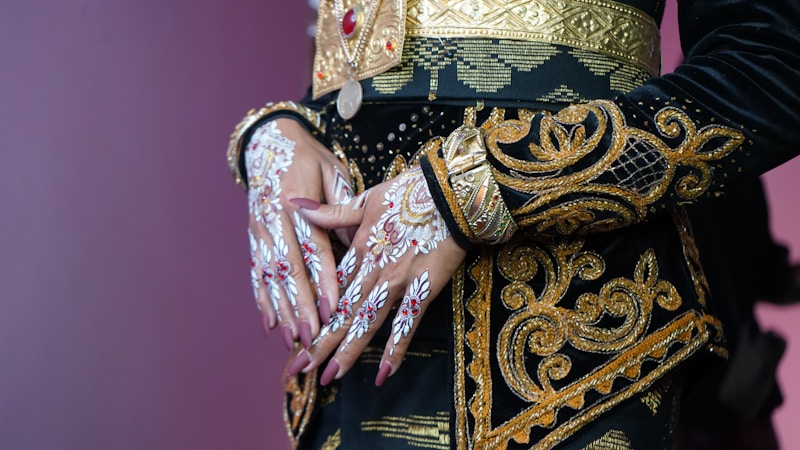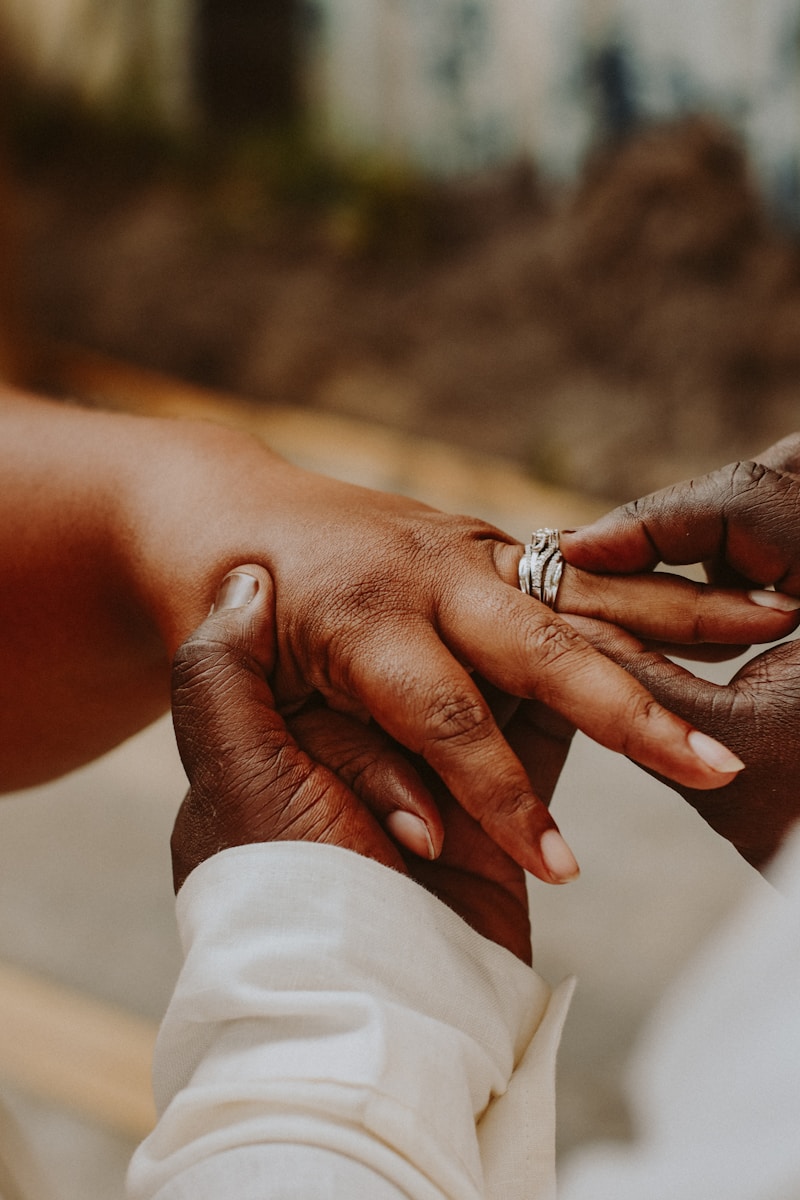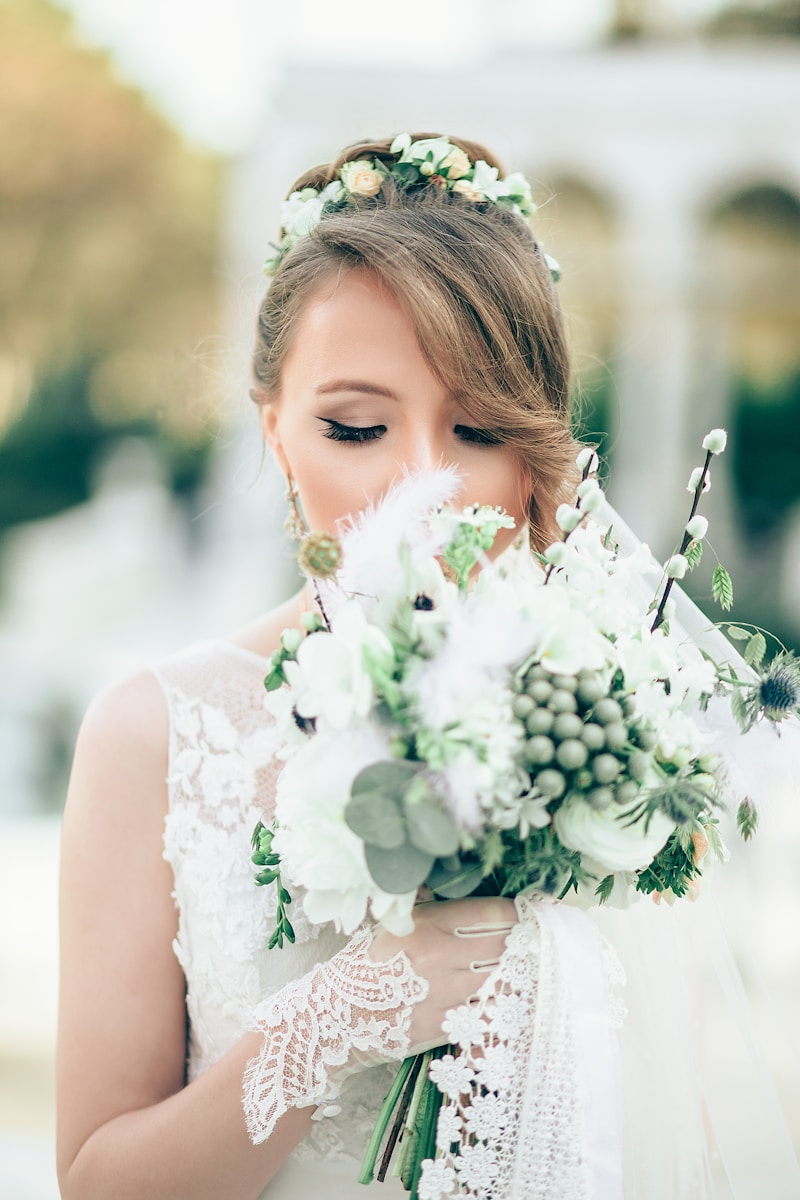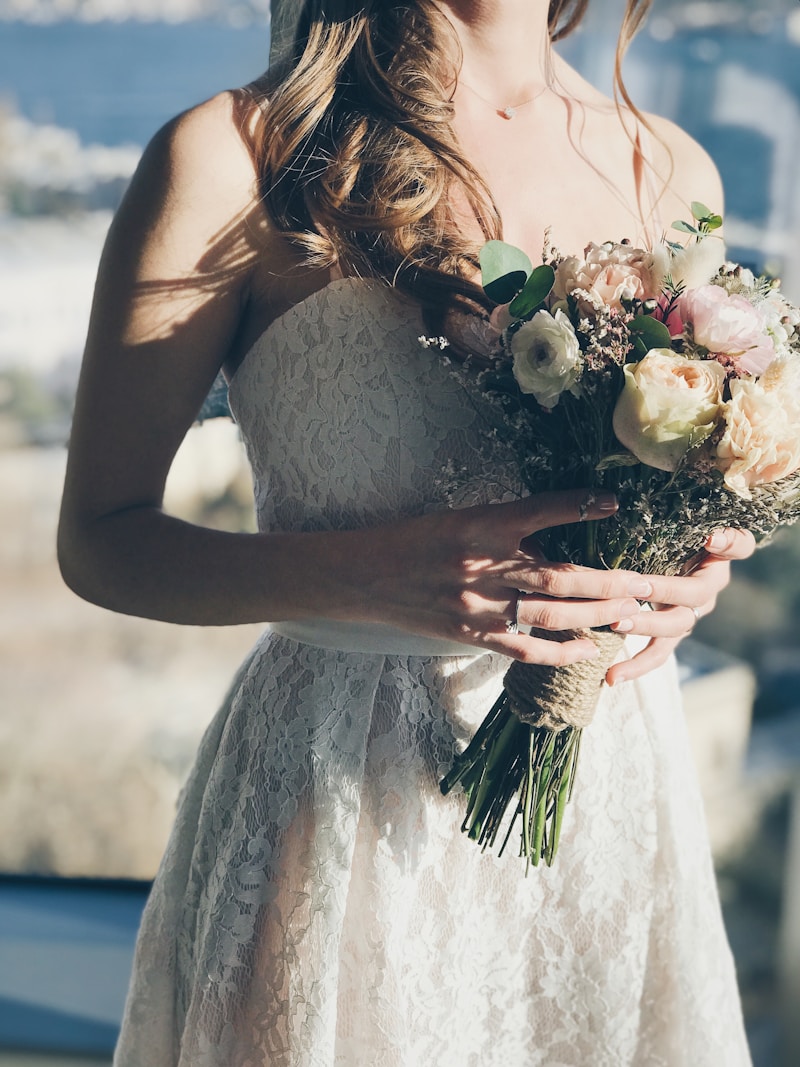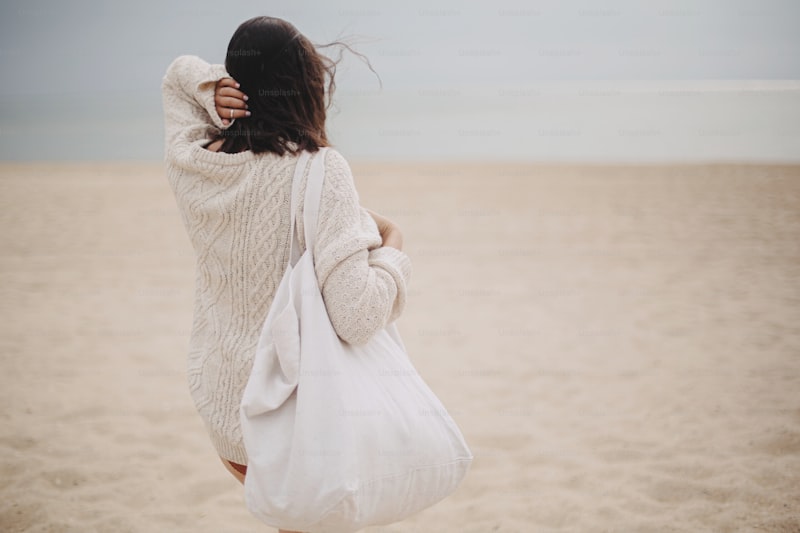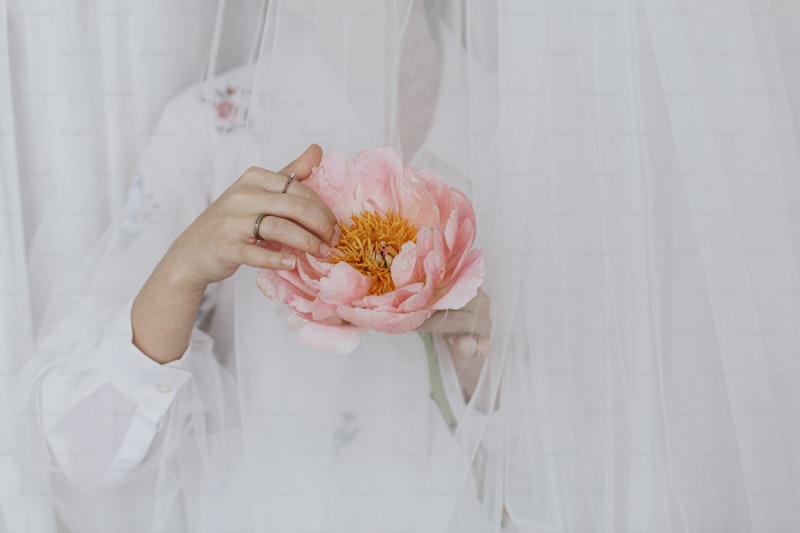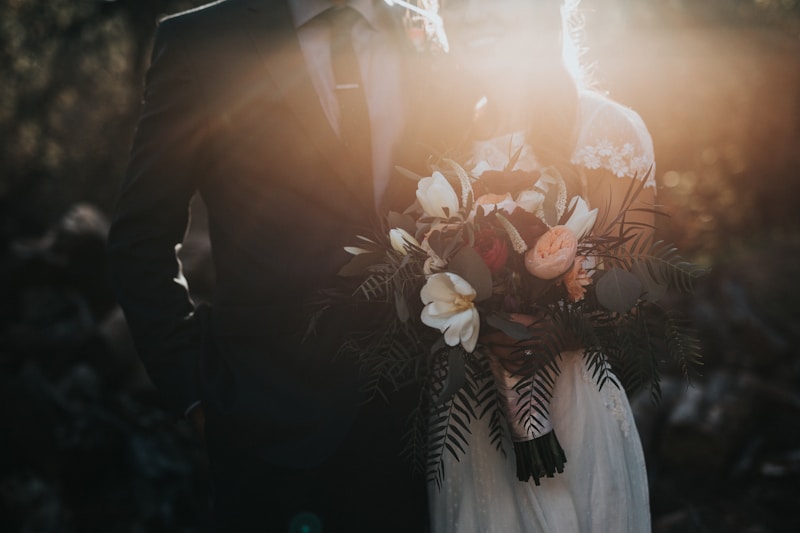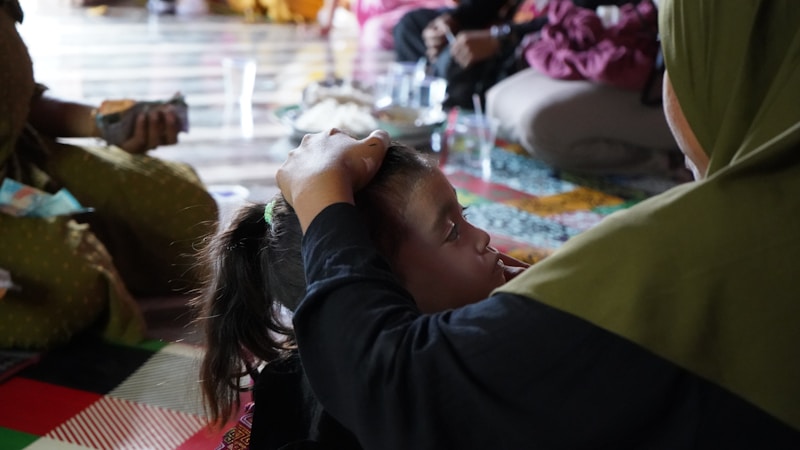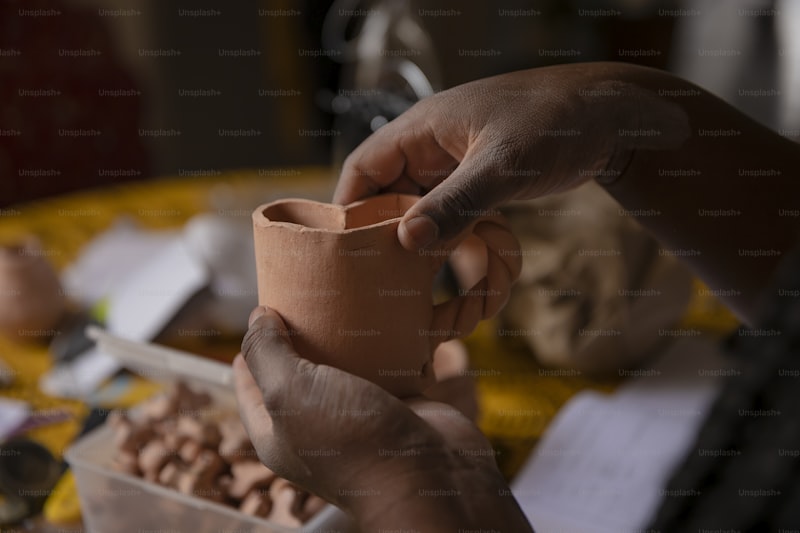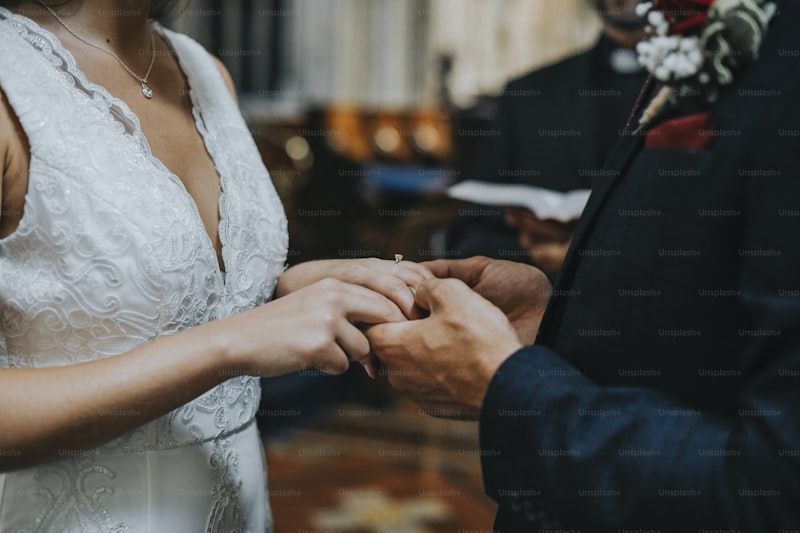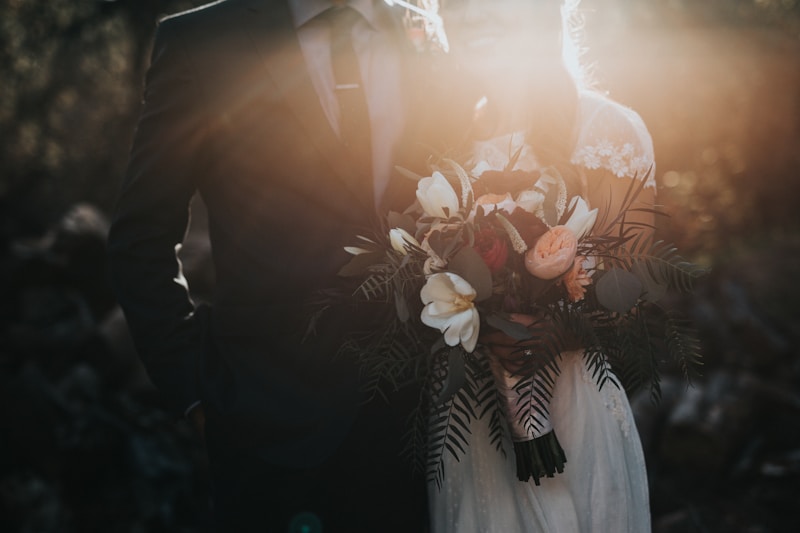The Role of Community in Cultural Weddings: A Celebration of Heritage and Togetherness
Understanding the Importance of Community in Cultural WeddingsCultural weddings are not merely events centered on two individuals but are significant communal celebrations that weave together diverse traditions, beliefs, and values. The role of community in cultural weddings is paramount, as it enhances the richness of the celebration and fosters social bonds. From participating in traditions to contributing to the festivities, the community shapes the wedding experience in profound ways.Why Community Matters in Cultural WeddingsCommunity plays a vital role in cultural weddings for several reasons. These celebrations are deep-rooted in traditions that often require collective participation, and the involvement of family, friends, and community members enhances the overall experience. Here are a few key aspects where community involvement is essential:1. Shared Traditions and CustomsCultural weddings often incorporate specific rituals and customs that are intended to be performed by the community. For example, in many Indian weddings, the 'Sangeet' night is a community celebration that involves music, dance, and festivities shared among families and friends. This not only enhances the joyous atmosphere but also strengthens community ties.2. Emotional Support and GuidanceWeddings can be overwhelming for couples and families alike, and having a community around can provide critical emotional support. Community members offer advice based on their experiences, thus helping the cou...
Bridging Cultural Gaps in Marriage Ceremonies: A Comprehensive Guide
Marriage ceremonies are profound personal celebrations that often reflect cultural, religious, and familial traditions. However, as globalization increases, many couples find themselves navigating the intricate waters of merging cultural practices into their wedding ceremonies. This article will explore how to bridge cultural gaps in marriage ceremonies, providing insights and strategies for couples from diverse backgrounds.Understanding Cultural Differences in Marriage CeremoniesEvery culture has its unique marriage customs, which can include specific rituals, attire, and even the roles of various participants. Understanding these traditions is crucial when two individuals from different backgrounds decide to tie the knot. For instance, in some cultures, pre-wedding rituals play a vital role, while in others, the focus may be predominantly on the ceremony itself.Common Cultural Practices to ConsiderWhen planning a wedding that honors both partners' cultural practices, it is essential to recognize the following common elements:Cultural ElementDescriptionRitualsSpecial practices that may involve prayers, offerings, or blessings.AttireTraditional clothing that reflects cultural heritage and identity.Ceremony StructureThe sequence of events, which could vary significantly between cultures.Guest InvolvementThe role of family and friends may differ according to cultural norms.Why Bridging Cultural Gaps is ImportantBridging cultural gaps in marriage ceremonies accomplishes several ...
Weddings as a Canvas for Cultural Expression: Celebrating Traditions through Nuptial Ceremonies
Weddings are more than just a celebration of love; they serve as a vibrant canvas for cultural expression. Each wedding is unique, reflecting the traditions, beliefs, and values of the couple and their families. From the attire to the ceremonies, every detail plays a crucial role in showcasing cultural heritage. In this article, we will explore how weddings act as a medium for cultural storytelling, highlighting different cultural practices around the world and offering insights into making weddings more meaningful by incorporating cultural elements. Understanding the Significance of Cultural Expression in WeddingsCultural expression in weddings encompasses a myriad of facets—rituals, symbols, music, and attire. These elements are deeply rooted in historical practices and social customs. As couples choose to weave their heritages into their wedding celebrations, they honor their ancestry while creating lasting memories. Every culture has its unique rituals, and this diversity is what makes weddings a beautiful tapestry of human experience. The Role of Rituals in Wedding CeremoniesRituals form the backbone of wedding ceremonies, varying vastly across different cultures. For instance, in Indian weddings, the Saat Phere or seven circumambulations around a sacred fire is essential symbolic of the couple's commitment to one another. In contrast, Western weddings often include the exchange of vows and rings, symbolizing fidelity and unity. Such rituals provide a sense of continuity...
Cultural Traditions in Weddings: A Global Perspective
Weddings are not just a union of two people; they are a rich tapestry of cultural traditions that reflect the values and history of societies around the world. Each culture has its distinct practices that symbolize love, commitment, and family. In this article, we will explore various cultural traditions in weddings, showcasing the beauty and significance of these rituals.Understanding the Importance of Cultural Traditions in WeddingsCultural traditions in weddings vary widely across regions and communities, with each tradition embodying deep meanings and beliefs. For instance, some traditions may focus on religious aspects, while others emphasize family ties and social status. The way couples celebrate their wedding day often reflects their cultural upbringing and the significance of family heritage.Table of Common Wedding Traditions Around the WorldCountryTraditionSignificanceIndiaHand-tying ceremony (Saptapadi)This symbolizes the couple's commitment to taking seven steps together, representing seven vows they make to each other.MexicoLa Hora LocaThis involves a lively celebration after the ceremony, bringing guests together for fun and dance.JapanSan-san-kudoThe couple drinks sake three times from three different cups, symbolizing their union and respect for family.JewishBreaking the glassThis tradition signifies the fragility of relationships and the importance of cherishing love.GreeceCrowning ceremonyThis includes the placing of crowns (stefana) on the couple’s heads, s...
Cultural Significance of Attire: Unraveling the Threads of Identity
Understanding the Cultural Significance of AttireAttire is more than just fabric stitched together; it serves as a powerful form of expression and identity across cultures. Whether it’s a traditional kimono from Japan, a colorful sari from India, or the iconic Scottish kilt, different attires convey unique messages about the culture, heritage, and history of a people. In this article, we will delve into the various dimensions of the cultural significance of attire, exploring how clothing shapes identities, rituals, and social standings around the world.The Role of Attire in Cultural IdentityClothing often serves as a visual representation of cultural identity. It embodies the values, beliefs, and customs of a community. For instance, in the Maasai culture of East Africa, the vibrant shúkà (a traditional cloth) worn by warriors symbolizes bravery and acts as a reflection of their rich heritage. Similarly, the intricate patterns and colors of a Navajo blanket tell tales of community history and spirituality.Moreover, attire can signify one's status, profession, or role within a societal structure. In many cultures, specific garments are reserved for ceremonial use, such as wedding dresses, religious robes, and military uniforms, showcasing the blend of personal and cultural identity.The Influence of Globalization on Traditional AttireGlobalization has brought about significant changes in traditional attire across the globe. While it has promoted cultural exchange and fusion, it...
Embracing Love: The Rise of Fusion Wedding Celebrations
Weddings have always been a joyous occasion, reflecting love, culture, and tradition. However, as the world becomes increasingly interconnected, a new trend is emerging – Fusion Wedding Celebrations. This article explores what Fusion Weddings are, highlights their significance, offers insights into planning one, and delves into why they are gaining popularity among couples worldwide.What are Fusion Wedding Celebrations?Fusion wedding celebrations merge elements from different cultural backgrounds, creating a unique experience that honors both partners' heritages. These events allow couples to blend their customs, traditions, and styles to create a personalized, memorable day. For instance, a wedding that incorporates Hindu rituals alongside Western customs exemplifies a fusion approach.Why Choose a Fusion Wedding?The choice to have a fusion wedding often stems from the couple's backgrounds. Increasingly, partners discover their deep connections to their cultural roots regardless of their upbringing. Here are several reasons why couples opt for fusion weddings: Celebration of Diversity: Fusion weddings showcase the beauty of diversity and the ability to blend various traditions seamlessly. Personalization: Couples have the chance to personalize their ceremonies and celebrations, making it uniquely their own. Family Inclusion: By incorporating both families' backgrounds, couples can ensure that all family members feel represented and honored. Memorable Experiences: Fusion w...
Exploring Global Wedding Practices: A Journey Through Traditions and Ceremonies
Introduction to Global Wedding PracticesWeddings are a universal celebration of love and partnership, yet the customs and rituals associated with them vary immensely across different cultures and regions. This diversity enriches the human experience, providing unique insights into the values and traditions that define various societies. In this article, we will delve into the many facets of global wedding practices, exploring fascinating customs, significant symbols, and prevalent trends that characterize nuptial ceremonies around the world.The Importance of Weddings Across CulturesWeddings serve not only as a union of two individuals but also as a celebration of family, community, and cultural identity. Every culture has its own set of traditions that reflect shared beliefs, values, and social structures. These practices can range from elaborate ceremonies that last several days to simple gatherings that signify the beginning of a couple's marital journey. As we explore these customs, we will reveal how wedding practices encapsulate the essence of a culture.A Look at Wedding Traditions Around the WorldCountryWedding TraditionSignificanceIndiaLavish Multi-Day CelebrationsEmphasis on family, community bonding, and vibrant cultural expressions.JapanShinto CeremoniesHarmony with nature and respect for ancestral traditions.MexicoLa Hora Loca (The Crazy Hour)Celebration of love with joyous partying and traditional music.ScotlandHandfastingAn ancient ritual symbolizing the binding ...
Exploring Heritage and Identity in Weddings: A Cultural Connection
IntroductionWeddings are a profound celebration, not merely a union of two individuals but also a rich tapestry woven from the threads of heritage and identity. Different cultures come together in this joyous occasion to express love, familial ties, and community. In this article, we will delve into the intricate relationship between heritage, identity, and weddings, alongside key elements that highlight this unique bond.The Significance of Heritage in WeddingsHeritage plays a pivotal role in shaping the customs and traditions observed during weddings worldwide. Each culture brings its own unique practices and rituals that reflect history, beliefs, and shared values. For instance, in Indian weddings, the ceremonial rituals, including the more famous "Saptapadi" or the seven vows, depend heavily on ancient traditions. This highlights how the identity of the couple and their families is deeply intertwined with cultural customs.Types of Heritage That Influence WeddingsCultural HeritageThe practices, rituals, and ceremonies observed in weddings dictated by a specific culture.Religious HeritageBeliefs and traditions related to religious teachings that influence wedding ceremonies, such as Christian, Hindu, Jewish, or Muslim weddings.Family HeritageFamilial customs passed through generations, influencing how weddings are organized and celebrated.Identity: A Reflection in WeddingsIdentity serves as a mirror reflecting personal history, beliefs, and values. Weddings often allow indiv...
Exploring Traditional Rituals and Customs: A Deep Dive into Cultural Heritage
Understanding Traditional Rituals and CustomsTraditional rituals and customs represent the rich tapestry of human culture, showcasing the values, beliefs, and social practices of diverse communities. They serve not only as a way to connect with the past but also as a means of reinforcing identity and cultural heritage in contemporary society. In this article, we delve into various aspects of traditional rituals and customs, exploring their significance, forms, and examples from around the globe. We will also address commonly asked questions surrounding these practices.The Significance of Traditional Rituals and CustomsRituals and customs play a crucial role in human societies, enriching lives and fostering a sense of belonging. Here are several key reasons why they are significant: Cultural Identity: They help maintain cultural identity and facilitate the transmission of values from one generation to another. Social Cohesion: Rituals bring people together, strengthening community bonds and shared experiences. Spiritual Significance: Many customs have religious or spiritual roots, providing meaning and purpose to participants. Historical Context: They often carry historical significance, preserving stories and events that have shaped cultures.Forms of Traditional Rituals and CustomsTraditional rituals can be categorized into various forms, reflecting the vast diversity among cultures. Some common types include: Ritual Type Description ...
Diversity in Wedding Celebrations: Embracing Cultures and Traditions
Diversity in Wedding Celebrations Weddings are one of the most significant life events that bring together not just two individuals, but also their families, friends, and cultures. The diversity in wedding celebrations around the world reflects the richness of cultural heritage, traditions, and values. In this article, we will explore the various aspects of diversity in wedding ceremonies, the significance of different customs, and how couples can celebrate their love while honoring their unique backgrounds. The Importance of Diversity in Weddings Every culture has its own unique way of celebrating love and commitment. These celebrations often include traditional practices, religious rituals, and symbolic gestures that hold deep meaning for the participants. Embracing diversity in wedding celebrations not only enriches the wedding experience but also fosters tolerance and understanding among different communities. Here are some key benefits: Strengthening Cultural Identity: Celebrating cultural traditions helps preserve heritage and instills a sense of pride among communities. Creating Memorable Experiences: Diverse wedding customs contribute to unforgettable moments that reflect the couple's values and backgrounds. Fostering Inclusion: When couples integrate various traditions into their weddings, they promote a sense of unity among guests from different backgrounds. Exploring Global Wedding Traditions To better comprehend the diversity in wedding celebrations, let'...
Exploring Ethnic Influences on Wedding Décor: A Cultural Journey
Weddings are significant milestones in one’s life, cherished for their celebration of love and unity. However, they also often reflect the cultural heritage and traditions of the individuals involved. In this article, we’ll delve into the ethnic influences on wedding décor, examining various styles and customs worldwide and how they shape these beautiful ceremonies.A Melting Pot of CulturesEvery culture has its own unique wedding rituals and decorating styles, which can greatly influence how ceremonies are planned and executed. From the vibrant colors of an Indian wedding to the simplicity of a Scandinavian nuptial, each ethnic background provides a rich tapestry of options for couples to explore. Many couples opt to blend different cultural elements, creating a personalized event that reflects their unique background.1. Traditional Indian WeddingsIndian weddings are renowned for their elaborate decorations and use of vivid colors. Bright reds, vibrant pinks, and rich golds dominate the landscape. include:ElementDescriptionMandapA decorated structure where the wedding ceremony takes place, often adorned with flowers, beads, and fabrics.RangoliColorful patterns made on the floor using colored powders or flower petals, symbolizing hospitality and festivity.Floral ArrangementsExtensive use of fresh flowers, including marigolds and jasmine, enhances the vibrant ambiance.The décor not only elevates the aesthetic appeal but also carries deeper meanings relating to customs and beli...
Unveiling the Symbolism of Colors in Cultural Weddings
Cultural weddings are vibrant celebrations that reflect the rich heritage and traditions of various communities around the world. One of the most striking elements of these ceremonies is the use of colors, each carrying its own profound symbolism and meaning. Understanding the symbolism of colors in cultural weddings is essential not only for the couples but also for the guests, as it adds a layer of appreciation for the customs being observed.Understanding Color Symbolism in WeddingsColors within wedding ceremonies are not merely aesthetic choices; they embody deep cultural significance and narratives. Different cultures attribute various meanings to specific colors, impacting everything from the choice of attire to decorations. Below, we explore some common colors and their meanings across diverse cultural weddings:ColorSymbolismCultural ContextRedLove, Passion, HappinessProminent in Chinese weddings, where it symbolizes joy and good fortune.WhitePurity, InnocenceCommon in Western weddings, representing purity and a new beginning.GreenGrowth, FertilitySeen in many Middle Eastern weddings as a symbol of fertility and prosperity.BluePeace, LoyaltySignificant in Hindu weddings, where blue signifies protection and tranquility.GoldWealth, ProsperityOften used in Indian weddings, representing wealth and an auspicious beginning.1. The Vibrant Red: A Symbol of Joy in Chinese WeddingsIn Chinese culture, red is ubiquitous during weddings. It symbolizes happiness, good luck, and prosp...
